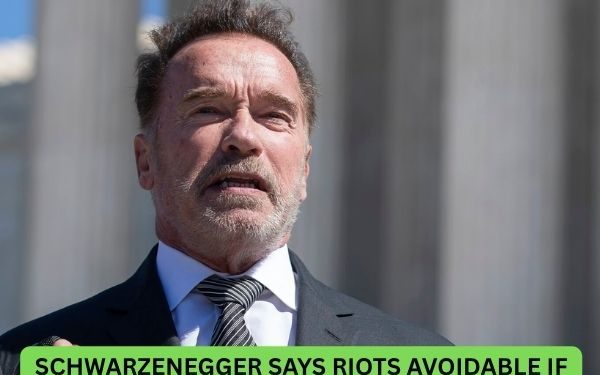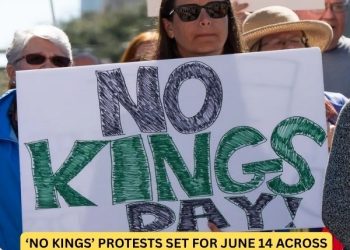Former California Governor Arnold Schwarzenegger (R) held politicians responsible for the widespread protests shaking Los Angeles and other cities, sparked by President Trump’s increased immigration sweeps.
The action star criticized lawmakers for turning immigration into a political tool instead of working toward a solution.
“This wouldn’t happen if the politicians would do their work,” Schwarzenegger said during an appearance on CBS’s “Jimmy Kimmel Live!” on Wednesday. “Rather than always pointing the finger at each other, they should really get together and solve this problem, because that’s what the American people want.”
“For almost four decades, we’ve had this issue where they talk about immigration reform, comprehensive immigration reform, but both Democrats and Republicans show no real interest in solving it — because they use it to raise money,” he added.
Schwarzenegger, originally from Austria and a former bodybuilder, came to the U.S. in 1968, became a citizen in 1983, and served as governor from 2003 to 2011. During his campaign, some questioned whether he had once been in the U.S. without authorization.
He’s also had a long-running feud with President Trump, who he temporarily replaced as host of NBC’s “The Apprentice” when Trump entered the 2016 presidential race.
When Kimmel asked about their current relationship following Trump’s return to the White House this year, Schwarzenegger jokingly pretended to cry before smiling.
Kimmel’s Los Angeles-based show included a nearly 20-minute conversation where both he and Schwarzenegger argued the L.A. protests weren’t as severe as some portrayed them.
“I don’t want tourism in Los Angeles to take a hit just because of what people see on television,” Schwarzenegger said. “Sometimes the media shows it like the whole city is a war zone.”
In response to rising tensions, Trump deployed thousands of National Guard troops and Marines to Los Angeles to protect federal buildings and personnel after last Friday’s ICE workplace raids.
California Governor Gavin Newsom (D) opposed the use of military force and took legal action against the federal government. However, a judge denied the state’s emergency request to block the deployments.








